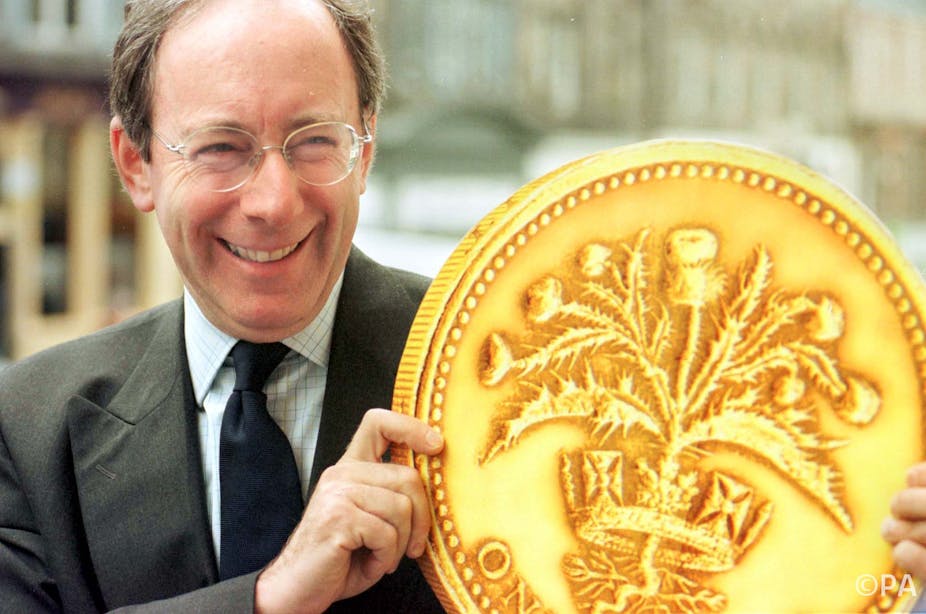Malcolm Rifkind, the former foreign secretary, has been suspended from the Conservative party after being accused of offering access to ambassadors for money. This follows hot on the heels of a similar controversy involving Jack Straw, another former foreign secretary for Labour. Both were caught in a sting set up by Channel 4 and The Telegraph.
Allegations about cash for access, cash for influence and cash for questions are a regular feature of reporting on Westminster politics. MPs and peers regularly fall foul of media traps designed to catch them revealing inappropriate business links or activities.
A quick look at the official register of financial interests declared by parliamentarians reveals that many MPs top up their salary with directorships or continue to work elsewhere for a few hours a week – often as solicitors, lawyers or judges. The Guardian reported last year that 20 MPs declared more than £100,000 in outside earnings.

In the face of criticism, these MPs tend to follow a similar approach to each other. They deny any wrongdoing but at the same time refer themselves to the parliamentary standards commissioner, just as Straw and Rifkind have done.
The party leaders agree that they have done the right thing (as David Cameron did when the Rifkind scandal broke), suspend them from the party and pledge that they will introduce greater regulation or reform the rules on MPs and financial interests – just as Ed Miliband has done in this case.
The final outcome of the official investigations into the conduct of the two MPs is unlikely to be a surprise. Both will probably face suspension – something that probably won’t keep Straw awake at night, given that he is only a few months from retirement anyway.
Time flies
So far, so predictable. But there is something else in all of this that seems to have been overlooked in the rush to accuse Rifkind and Straw of acting improperly. The secretly recorded footage of Rifkind shows him telling the reporters that they would be surprised by the amount of free time he has. To emphasise this he reveals that he spends a lot of time reading and going for walks.
Most MPs would report quite the opposite. Research by the Hansard Society found that newly elected MPs estimated that they spent an average of 67 hours a week fulfilling their parliamentary duties. A fifth of those asked claimed to work more than 80 hours a week. Constituency demands are increasing and the amount of emails flooding in to MPs’ inboxes is rising at an alarming rate.
Rifkind clearly fulfills various duties as a parliamentarian. His list of questions and contributions to debate in the House of Commons seems fairly robust and, with more than 30 years of service in the House, he should have a fair idea of what the role of MP involves.
And as well as being a backbench MP, Rifkind is also a member of the National Security Strategy Committee – which is currently writing its report on security strategy for the next parliament – and is the chairman of Parliament’s Intelligence and Security Committee. Both of these roles must surely account for a significant proportion of his time.
His entry in the Register of Members’ Financial Interests shows that he is a non-executive director of Adam Smith International, Unilever and the Alliance Medical Group. He attends 30 board meetings a year in these roles, as well as attending ad hoc meetings and carrying out “occasional email exchanges”. He is the chairman of the advisory board for LEK consultants (another four meetings a year) and a senior counsellor at Dragoman, an advisory company based in Melbourne, requiring yet more meetings and email communications.
All told, he wears an awful lot of hats and has committed himself to a lot of additional non parliamentary work. We might perhaps then be less concerned about whether or not Rifkind’s comments suggested a breach of the rules governing MPs’ second jobs and more concerned about what he is actually doing in his primary job.
MPs have no formal contract of employment and there is no formal job description. This leads to discrepancies in how each views their role in parliament. They all take a very different approach to what work they should be doing and when they should be doing it.
We will, no doubt, see further regulations on outside incomes as a result of what we have learnt about Rifkind and Straw but perhaps we should also be asking whether it is now time to consider formal contracts of employment and hours of work for our Members of Parliament.

